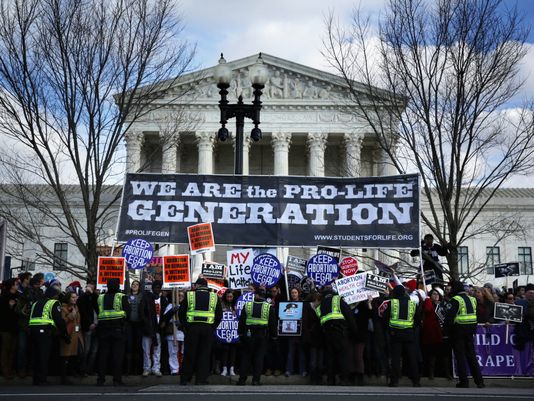The bishop of Little Rock has taken a strong pro-life stand – one that includes not only being anti-abortion, but also anti-death penalty.
Many of the people writing for this blog have written about the importance of being broadly pro-life. I am one such person who finds that being pro-life means having deep concern about our whole culture of death, including abortion and euthanasia, as well as our treatment of death-row inmates, our perception of just war, and our use of the environment in which we live.
My source for this from Catholic tradition is from Saint Pope John Paul II’s Evangelium Vitae. In paragraph 27, for example, he writes about signs of hope – such as the non-violent activists against abortion but also
Among the signs of hope we should also count the spread, at many levels of public opinion, of a new sensitivity ever more opposed to war as an instrument for the resolution of conflicts between peoples, and increasingly oriented to finding effective but “non-violent” means to counter the armed aggressor.
Or in paragraph 42, in a meditation on Genesis 1:28 and the commandment to be fruitful and multiply:
It is the ecological question-ranging from the preservation of the natural habitats of the different species of animals and of other forms of life to “human ecology” properly speaking 28 – which finds in the Bible clear and strong ethical direction, leading to a solution which respects the great good of life, of every life.
Bishop Taylor is following in these footsteps. I think that Catholics might show support especially by attending the masses mentioned in the article.




Jana-
I am part of the choir that affirms your (and others here) who have a broad sense of the nuances of the Church’s teaching regarding the sanctity of all creation. I also believe that at the heart of this affirmation of what is good and true is “The Gospel of Life,” I have found that the reflections of “Forming Consciences for Faithful Citizenship” to be as helpful (and at times even more helpful, given the personal, theological, social, and political climates that reflect the ethos of the twenty-first century in which life issues have become increasingly important. I say this because not only has the modern world benefited and been burdened by increases in medical technology; and suffered due to the renewed proliferation of relativism* (as apposed to proportionality) challenged the Church’s teaching of issues of life and all health care; but also the Church’s “conversion” regarding it understanding of the interdependence of all creation, as evidenced in “Laudato Si”**. As a result the Conservative arm of the Church has generally adopted a pro-birth stance as opposed to pro-life one.
“Faithful Citizenship” is particularly helpful in two sections:
First, in the section entitled “Human life” repeats, expands and enhances both Evangelium Vitae and the bishop’s document of 1998. It is no. 66 is of particular importance as it reads, “Respect for human life and dignity is also the foundation for essential efforts to address and overcome the hunger, disease, poverty, and violence that take the lives of so many innocent people.”
Second, the section entitled “Care for our Common Home” insists that care for the entire created order is a deontological and relational/responsible to our interdependence with all creations. It concludes noting that our efforts must be extended to the poor and children who are most vulnerable to environmental assault, noting that, “our efforts should focus on working with the poor to help them build a future of hope and opportunity for themselves and their children.”
In short, our lives are oriented toward the ultimate good, i.e., God. Therefore we must respond to God’s call to conversion from what is perceived as good to that which is of eternal value (see the conversion of Paul, recorded 3 times in Acts). This means that pro-birth stances represent foundation efforts in or attempt to preach the gospel of life, we must be pro-life, as indicated above to allow that gospel to take route in the soul of humanity.
*Note that Cardinal Ratzinger, just prior to his elevation to the pacy, wrote the following regarding relativism:
“Having a clear faith, based on the creed of the Church, is often labeled as Fundamentalism…while relativism, being swept away by by any wind of doctrine – is made to appear the only attitude acceptable in these times. (Late April 2005).
**The pope’s encyclical is reflectively summarized by Francis’ statement, that humanity must experience an “ecological conversion”, whereby the effects of their encounter with Jesus Christ become evident in their relationship with the world around them. Living our vocation to be protectors of God’s handiwork is essential to a life of virtue; it is not an optional or a secondary aspect of our Christian experience. (217)